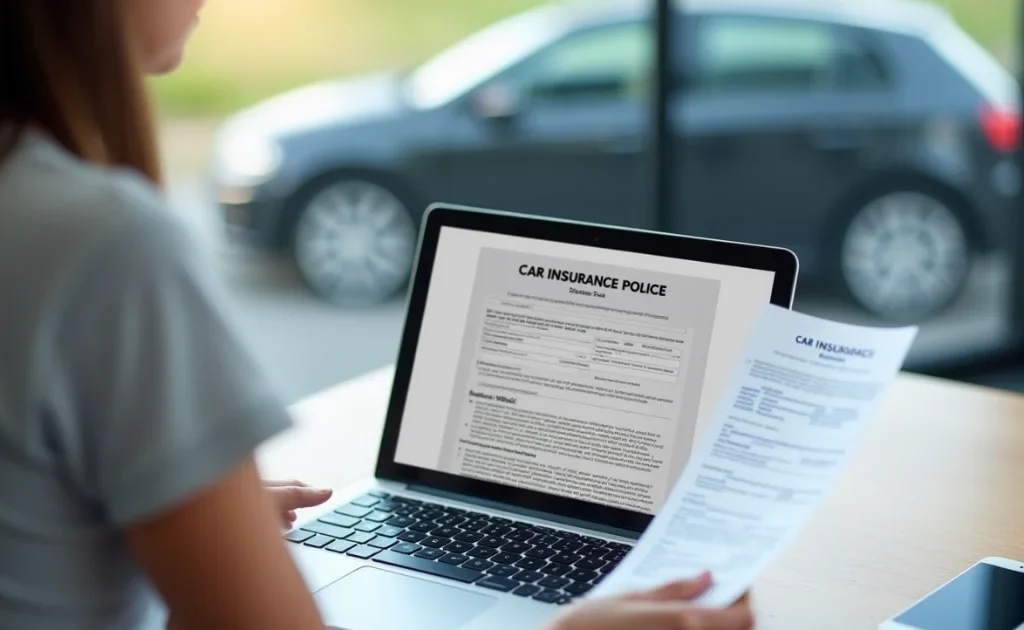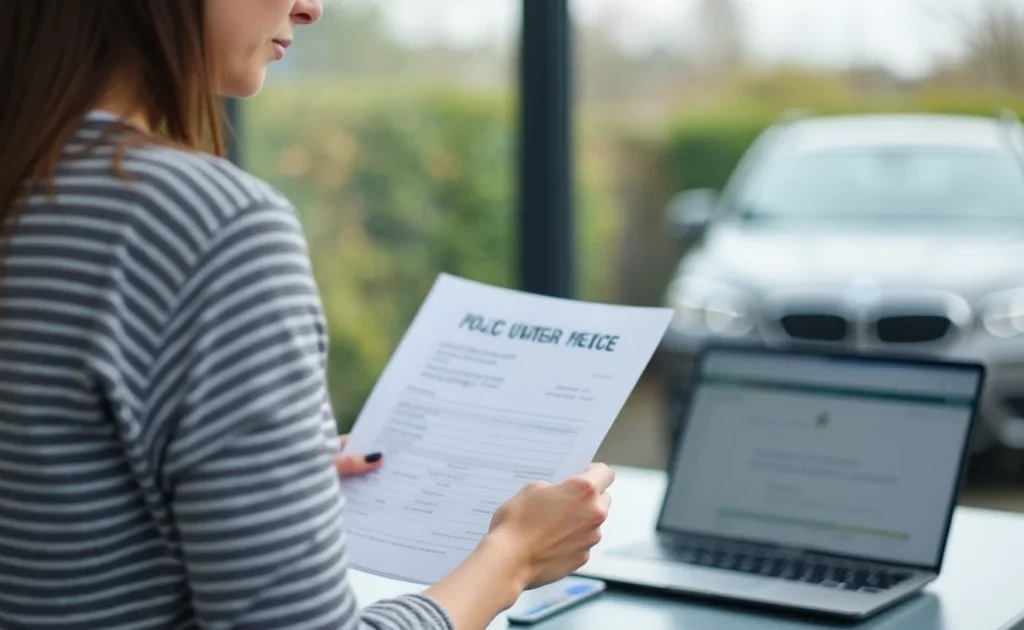Congratulations! You’ve finally paid off your car, and the weight of that loan is no longer hanging over your head. The sense of freedom you feel is undeniable, but with this new chapter in your car ownership comes a set of questions you might not have thought about before. One of the most common questions after paying off a car is: “Can I keep my insurance under one name and register the car under another?” Many people share the same question.
Whether you’re considering having someone else as the registered owner or adding a primary driver who isn’t the car’s owner, understanding how car insurance and registration work together is crucial. So, let’s break it down in a way that helps you make informed decisions, without running into any legal or insurance issues down the line.
Understanding the Basics of Can You Have 1 Person Insurance and Other Registration
Before we dive into the main question, let’s take a step back and review the basics of car insurance and car registration. It’s essential to understand how these two elements work individually before figuring out how they interact when one person is insuring a vehicle while another person owns it.

What Is Car Insurance?
Car insurance is a must-have for any vehicle on the road. It acts as a safety net in case something goes wrong, such as an accident or theft. At its core, insurance provides financial protection against damages caused by accidents, injuries, or theft.
There are several types of coverage you may have heard of or are likely to consider:
- Liability Insurance: This covers damage to others’ property and any medical costs if you’re at fault in an accident.
- Collision Insurance: This helps pay for repairs to your own car after a crash.
- Comprehensive Coverage: Covers non-collision incidents such as theft, vandalism, or natural disasters.
- Uninsured/Underinsured Motorist Coverage: This protects you if you’re hit by a driver who doesn’t have sufficient insurance.
What Is Car Registration?
Car registration is the process by which your vehicle is officially recorded with the government. It’s your car’s “birth certificate” that validates the vehicle’s ownership, making it legal to drive on public roads.
Some of the core aspects of car registration include:
- Ownership Proof: This can be shown through a title or sales contract, proving who owns the car.
- Vehicle Identification Number (VIN): A unique code assigned to every vehicle that helps track it.
- License Plates: A set of identifying plates that are tied to your vehicle once it’s registered.
While registration makes your car roadworthy and ensures the government can track it, insurance is what protects you financially if something goes wrong.
Can You Have 1 Person Insurance and Other Registration?
Now, let’s answer the burning question: Can you have one person’s insurance while the car is registered in another person’s name? The short answer is yes, but with a few important nuances.

Insurance Policies and Primary Drivers
Car insurance policies generally follow the vehicle, not necessarily the owner. This means that even if the car is registered in someone else’s name, the car can still be insured by a different person. However, the key point to understand here is that the primary driver needs to be listed on the policy.
Why is this important?
Insurance is based on risk assessment. If the primary driver is someone other than the registered owner, the insurance company needs to know this so they can provide proper coverage. For example, if you drive the car daily but are not the registered owner, you must still be listed as the primary driver on the insurance policy.
Who is the Primary Driver?
In the context of car insurance, the primary driver is typically the person who drives the vehicle most often. While it might seem logical that the car owner is the primary driver, this is not always the case. You could have a situation where someone else uses the car more frequently, and as a result, they should be listed as the primary driver on the insurance policy.
If the car owner and the primary driver are different people, it’s crucial to notify the insurance company. Failing to do so could lead to denied claims or higher premiums.
Can the Car Be Registered in Another Person’s Name?
Yes, it’s possible to have the car registered in someone else’s name while the insurance is held by another person, but certain conditions must be met. The main factor here is whether the primary driver is listed on the insurance policy.
Below are a few situations where this could occur:
- Car Gifted to Another Person: If someone buys a car for you but you are the primary driver, the car might be registered in the giver’s name while the insurance policy is in your name.
- Business Registration: A company might register a vehicle in its name, but a specific employee could be the one driving it. In such cases, the employee can be listed as the primary driver, while the insurance is under the business’s name.
- Multi-Owner Vehicles: A vehicle might be jointly owned by two or more people, but only one person drives it regularly. In this case, the primary driver must be listed on the insurance.
Key Takeaways:
- You can insure a car in one name and register it in another, as long as the primary driver is covered on the insurance policy.
- Be transparent with your insurance provider to ensure that your policy reflects the correct details about ownership and driving.
Legal Considerations and Risks of Separate Insurance and Registration
While it’s legally possible to insure a car under one person’s name and register it under another, there are risks involved. Let’s look at some of the legal and practical implications of this situation.
Risks of Misreporting the Primary Driver
One of the biggest risks associated with having separate insurance and registration is misreporting who the primary driver is. If you fail to list the actual primary driver on the insurance policy, there could be significant consequences.
Potential Issues Include:
- Claim Denials: If an accident happens and the person driving isn’t listed on the insurance policy, the insurer might deny the claim. This leaves the car owner and driver responsible for all damages out-of-pocket.
- Increased Premiums: If the insurer learns that the primary driver wasn’t correctly listed, they might raise your premiums to reflect the actual level of risk.
- Policy Cancellation: In some cases, misreporting the primary driver could lead to the cancellation of your policy.
Potential Legal Issues in Case of an Accident
If an accident occurs and the primary driver is not listed on the insurance policy, the financial consequences can be significant. Not only will you be left without coverage for the damages, but you might also face legal issues if the insurance company deems that the accident occurred outside the terms of your policy.
What You Need to Do:
- Always update your insurance provider if your driving habits change.
- Ensure that the driver who uses the vehicle the most is included on the policy.
- Follow state-specific regulations to avoid potential legal complications.
Case Scenarios: When Can Insurance and Registration Differ?
Now that we’ve gone over the basics, let’s look at some real-life scenarios where it’s perfectly fine to have different names on the insurance policy and the car registration.
Scenario 1: Car Purchased as a Gift
Let’s say your parents bought you a car, but the car is registered in their name, even though you’re the one who drives it most often. In this case:
- Insurance: Your parents can insure the car, but you, as the primary driver, need to be listed on the insurance policy.
- Registration: The car is registered in your parents’ name, but you drive it regularly.
This is a common situation, especially for young drivers or newly graduated students.
Scenario 2: Car Registered in Business Name
If you work for a company that provides you with a car, the vehicle might be registered in the company’s name. In this case:
- Insurance: The business may hold the insurance policy, but as the primary driver, you must be listed.
- Registration: The car is registered under the company’s name, but you’re the one who uses it daily.
Scenario 3: Multi-Driver Household
If you live with a partner and share a vehicle, but only one of you is the registered owner, you’ll want to make sure both names are listed on the insurance policy.
- Insurance: Both you and your partner can be listed as primary drivers.
- Registration: The car is registered in one person’s name, but both are listed as regular drivers.
Steps to Ensure Proper Insurance and Registration
If you’re considering insuring a car under one name and registering it under another, follow these steps to avoid complications and ensure proper coverage.
- Consult Your Insurance Provider:
- Explain your situation to your insurer and make sure they understand who the primary driver is.
- Ask about how the policy should be structured to reflect the correct driver and owner.
- Update Registration:
- Confirm the correct registration details with your local DMV or vehicle registration authority.
- Ensure that all necessary documents, including proof of ownership and title transfer, are in place.
- Review Your Policy Regularly:
- Whenever there’s a change in who drives the vehicle or any other significant changes, update your insurance policy.
- Ensure the policy covers all primary drivers and is compliant with local laws.
Conclusion: Navigating the Balance Between Insurance and Registration
Owning a car outright is a major milestone, but it also brings with it responsibilities. One of the most important tasks is understanding how to balance your car’s insurance and registration, especially if these are tied to different names.
By being transparent with your insurer, ensuring the right person is listed as the primary driver, and understanding your state’s rules about registration, you can drive with peace of mind knowing that you’re fully covered. Keep these steps in mind, and you’ll avoid costly mistakes or legal issues.
FAQ: Can You Have 1 Person Insurance and Other Registration?
Q1: Can I register my car in one person’s name but have it insured by someone else?
Yes, you can, but the primary driver must be listed on the insurance policy.
Q2: Will insurance cover a car if I am not the registered owner?
As long as you are listed as the primary driver on the insurance, you’ll be covered.
Q3: What happens if the primary driver isn’t on the insurance policy?
If the primary driver isn’t listed, the insurer may deny claims, leaving you liable for damages.
Q4: Can I insure a car that I don’t own?
Yes, you can insure a car that you don’t own, as long as you have permission to drive it and are listed as the primary driver.






